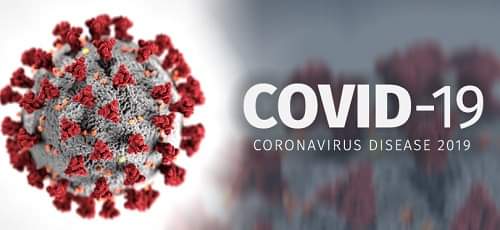
Sani Aliyu, national coordinator of the presidential task force (PTF) on COVID-19, says the committee is concerned about reports of people being smuggled in trucks out of Lagos.
Giving updates on COVID-19 on Thursday, Aliyu said inter-state travels are leading to community spread of the disease.
He appealed to Nigerians to limit their movement if the disease must be curtailed.
Several states in the country had banned inter-state travels in a bid to check the spread of COVID-19.
“I will like to talk on travel restrictions and to reemphasise the need for people to stay at home especially in the FCT, Lagos and Ogun. I would also like to note the issue of people travelling in-between states, inter-state travel. We have noticed that community spread is now being traced to people travelling across state borders,” Aliyu said.
“We need to try and restrict our movement in order to stop the spread of the coronavirus. This is particularly pertinent with regards to news of people being smuggled in trucks out of Lagos which is quite concerning to us.”
On their parts, Osagie Enahire, minister of health, and Chikwe Ihekweazu, director-general of the Nigeria Centre for Disease Control, (NCDC) raised concerns about how stigmatisation is inhibiting the government’s fight against the outbreak.
Ihekwazu said stigmatising people who tested positive for COVID-19 would cause them to run away from treatment, consequently leading to further spread of the disease.
“People have been asking questions, where are the people with COVID-19 living? What part of town are they? Of course, everyone is anxious and frightened. Unfortunately, this anxiety seems to be leading to stigmatisation,” Ihekweazu said.
“When the HIV hit our world, we did the same thing. But this is an infection, it doesn’t get to you because you have done anything bad or you have committed a crime. It is not karma, it is just a virus.
“The people with this virus have children, wives, family members. They need to be respected. It affects their mental well being if we as a society are stigmatising them.
“It is preventing our work from happening because contacts are choosing not to come forward, to hide, to run away, because we have started stigmatising them. What makes us a great nation is our humanity. If we start stigmatising people because of an infection, it will not only disrupt all the great work being done across the country but it will have a profound impact on our ability to control this outbreak and our ability to get back to life.
“What will happen is that people will go underground, they won’t come out for testing, infect others and the cycle will continue. All these things are connected.”
Ehanire said: “The next phase of our strategy in the health sector due to the available evidence of community transmission in Nigeria, now focuses on community response rather than individual travellers and their contacts in the society. There will be more community testing.
“COVID-19 outbreak seems to have provoked some social stigma and rejection of anyone thought to have been in contact with the virus as well as their caregivers, families, friends who may be stereotyped and discriminated against.
“This is not necessary because stigma can prompt social isolation of persons or groups and drive people to hide the illness and prevent them from seeking healthcare immediately.
“This could cause a situation where the virus is more likely to spread and increase difficulty of controlling the outbreak response.”













